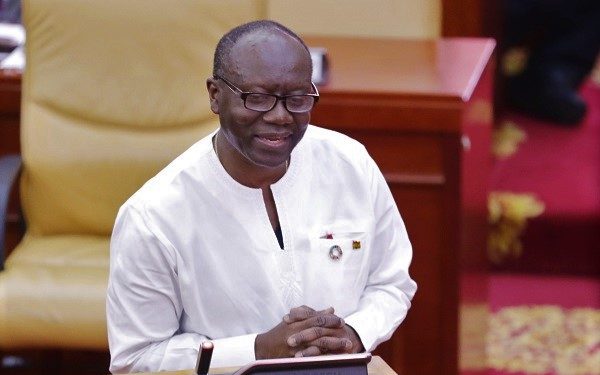2022 Budget: Projected 42.9% increment in revenue bold and necessary for debt sustainability – Tesah Capital
Asset Management Company (AMC) Tesah Capital, has described as bold and necessary for debt sustainability, government’s plan to raise Ghs 100.5 billion in total revenue for the 2022 fiscal year.
The AMC notes the projected revenue which represents a 42.9 percentage points increment (Ghs 30.5 billion) on the 2021 revenue outturn of Ghs 70.34 billion will increase the revenue generation capacity of the country.
The projected revenue increment Tesah Capital believes is necessary given that the country has long suffered from narrow revenue mobilization due to the existence of a large informal sector.
“The country depends largely on indirect taxes and import income from few primary commodities; though direct taxes as a share of total taxes witnessed some improvement from 42% in 2017 to 50% in 2020. Revenue targets have been missed for most of the years, from 2017 to 2020, highlighting the weakness in revenue forecasting capacity,” asserts Tesah Capital in its 2022 Budget Highlights.
The projected 42.9% revenue increment is expected to be achieved by government through the introduction of the electronic transaction levy, the 15% increment in government services, reintroduction of the 3% Flat Levy, property rates and government’s new resolve to pass the tax exemptions bill in 2022 to check revenue leakages as the immediate steps taken by government to increase revenues.
At the moment, Ghana’s public debt is unsustainable and pegged at 77.8 percent of Gross Domestic Product (Ghs 341.8 billion) and further projected to continue on an elevated path.
According to Tesah Capital, public debt as a ratio of GDP is expected to hit 80.4% by end-2021.
Of the total debt, domestic debt will amount to Ghs 185 billion representing 52.3 percent of GDP with external debt also amounting to Ghs 169 billion representing 47.7 percent of GDP.
Must Read: 2022 budget is to please investors, rating agencies – Prof Bokpin

Tesah Capital adds that the projected 7.4 percent fiscal deficit (Ghs 35.11 billion) for 2022 will increase the public debt to Ghs 395.81 billion.
“The expected fiscal deficit of cedis 35.11 billion cedis will increase the public debt to cedis 395.81 billion cedis. The rising inflationary risk in advanced economies implies that the government will face an increased cost of financing the debt through international debt markets.
“This suggests that the government is likely to continue with the trend of using the domestic debt market to finance a larger portion of the public debt. Increased borrowing in the local debt market could lead to an increase in interest rates and crowd out the private sector from the loan market,” the AMC notes.

Interest payments and employee compensation to decline
Interest payments, employee compensation and capital expenditure as components of domestic revenue Tesah Capital asserts are expected to marginally decline in 2022.
According to AMC, interest payments, employee compensation and capital expenditure over the last three years have been a major drainer of domestic revenue averaging 43%, 45% and 19% respectively.
“However, their component of domestic revenue is expected to decline from 47%, 48% and 18% in 2021 to 38%, 36% and 16% in 2022 respectively,” notes Tesah Capital.
The marginal decline in the components of government’s expenditure Tesah Capital states is as a result of the relatively higher projected growth in domestic revenue (30.5%) compared to projected growth in Interest payments (13.1%), employee compensation (7.9%) and capital expenditure (22.3%).

Projected total expenditure for the 2022 fiscal year (including payments for the clearance of arrears) is GH¢137.5 billion, equivalent to 27.4 percent of GDP.
The expenditure estimate for the 2022 fiscal year represents a growth of 23.2 percent above the projected outturn of GH¢111.6 billion, equivalent to 25.3 percent of GDP for 2021.
key drivers of expenditure growth include capital expenditure, funding of key government flagship programmes, wage bill, and interest payments.








